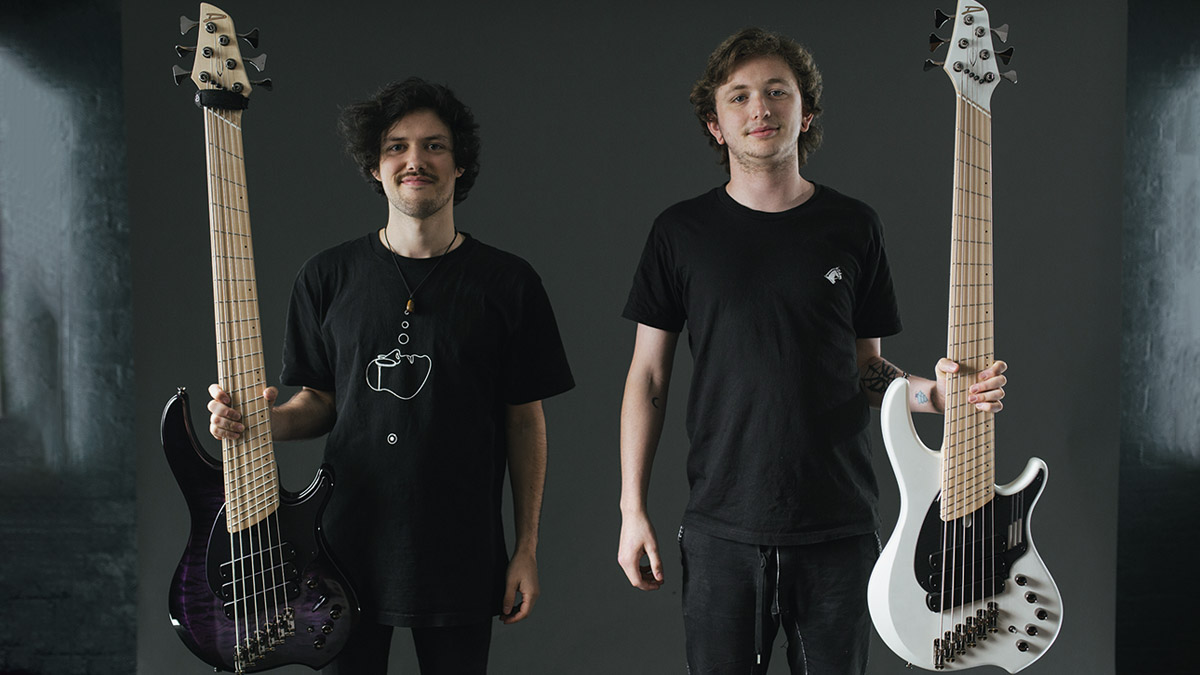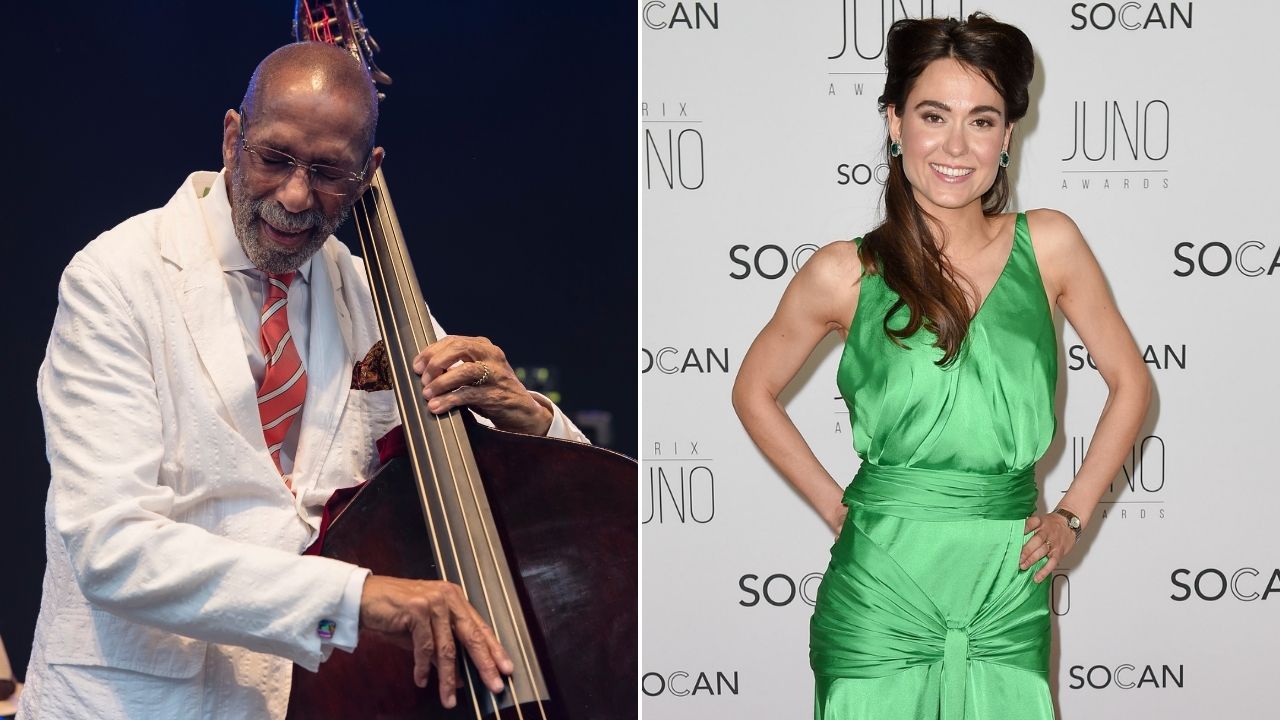The Omnific’s Matt Fack and Toby Peterson-Stewart on how two basses give their sound an unmatched low-end power
The Australian trio make music like no other band – with two bassists, a drummer, and a whole lot of genius

How long have you been working on The Omnific?
Toby: “We’ve been writing together for just over five years. When we started, people were like, ‘What the fuck? It’s two bass players!’ I would say that there’s been a lot of maturing along the way. As we get older, and this band gets older, the way that we write music grows older as well. At first we thought, ‘You can do anything with two basses, and it’ll be cool’, but now it’s more about growing into the whole concept.”
Matt: “When we started, we were 18 or 19 – just kids. We haven’t exactly matured yet or anything, but we’ve progressed through life, and with that growth comes the maturity of our new album, Escapades.”
How do you write the songs?
Matt: “The songwriting process is different for each of us. I’m really into sitting down for a long session, where the song almost seems to write itself. I have to do it in a single sitting or I lose the ideas behind it. I program a tab because that helps my workflow, and I can put all the instruments down in one go. And then when we come to demo it, the other two guys add a bit of input to it.”
Toby: “For the new album, Matt wrote six songs and I wrote four. Three out of my four took me two weeks to write. For each one. I literally slogged every day for two weeks, churning out all the crap ideas that came from one idea that I had, until I had a song that I really felt flowed. It’s not the smartest thing to do, because it takes ages, but I’m very happy with what came out in the end.”
How do you guys differ as bassists?
All the latest guitar news, interviews, lessons, reviews, deals and more, direct to your inbox!
Toby: “We started playing at the same point, but there’s definitely stuff that Matt has developed way past my comprehension, and stuff that I’ve definitely focused on. Matt’s good at crazy fingerstyle stuff that I can’t do. I thump a lot. That’s been my thing for the past little while.”
Matt: “We’ve both got our own musical influences. I was always very into classic Dream Theater, for example. We both listen to different music, but it’s not even just about music – we watch different movies, and do all different kinds of stuff that brings you inspiration. But the thing is, anything that we play, we need to perform live as well, so it will be added to both our arsenals at some point. We will put in the effort to be able to play each other’s stuff.”
That’s a lot of studying – there’s so much music in your band.
Matt: “It is, yeah, but it makes for a diverse record, which is really nice.
When did you guys start as bass players?
Matt: “I was 15.”
Toby: “I would have been 12, so that’s 12 years ago.
Matt: “I’ve played music since I was four. My mom went to the Berklee School of Music to do bass, which is pretty ridiculous. She was just learning there, because it was something she wanted to do, so there was always a bass lying around at home. One day I just picked it up, and I guess I created my own path with it and then found my way to this band.”
What about you, Toby?
Toby: “My family is entirely unmusical, so my experience was pretty different. I went to high school, and I was told when I went into my class that if you play bass before you start there, your first-year music programme will be bass. So I got pushed into the advanced class, even though I had no idea about anything at that point. I was totally tone deaf. I had to develop all of that stuff.”
What are your preferred instruments?
Matt: “We used to almost exclusively play Ernie Ball Bongos, but we recently got Dingwalls. They’ve opened up a lot of new things to do with the bass. I find the Dingwall lends itself a little bit more to slap, and it has a different character to the Bongo – a completely opposite character to some extent.”
Toby: “When you’re layering bass tracks like we do, we can layer the Dingwalls with a Bongo, or just stick to the Dingwalls. That’s so interesting, because you can get a heavier, more crunchy sound in a different way. A lot of the chordal stuff throughout the record was on the Bongo, because they’re very rich at that. They’re very complementary basses to each other. We use whichever sounds best.
“We have entirely Darkglass pedalboards, which are amazing; they endorse us. We also have a Neural DSP Quad Cortex.”
What are your goals?
Matt: “I’ve never had goals in the sense of wanting to become really good. I just always wanted to play a lot. Starting out, I listened to Rob Trujillo and all the Metallica bassists. I would skip school just to practice Metallica stuff.
“Later, it progressed into John Myung: I wanted to play a Bongo because he had one, and what he does on the instrument is pretty sick. And then about five or six years ago when we were starting to play this kind of music, we got into Amos Williams from Tesseract and Clay Gober from Polyphia. Clay is featuring on our new record, actually, which is awesome.”
Toby: “I very quickly realized when we started playing shows that people could hear every kind of little articulation and slip. Usually the bass is hidden, but in this band everyone can hear every single thing you play. So my focus has been on developing better articulation on the bass, which is an inspiration that I got from certain guitar players. I think a lot of bass players could learn from that.”
- Escapades is available now via Wild Thing Records.
Bass Player is the world’s most comprehensive, trusted and insightful bass publication for passionate bassists and active musicians of all ages. Whatever your ability, BP has the interviews, reviews and lessons that will make you a better bass player. We go behind the scenes with bass manufacturers, ask a stellar crew of bass players for their advice, and bring you insights into pretty much every style of bass playing that exists, from reggae to jazz to metal and beyond. The gear we review ranges from the affordable to the upmarket and we maximise the opportunity to evolve our playing with the best teachers on the planet.

